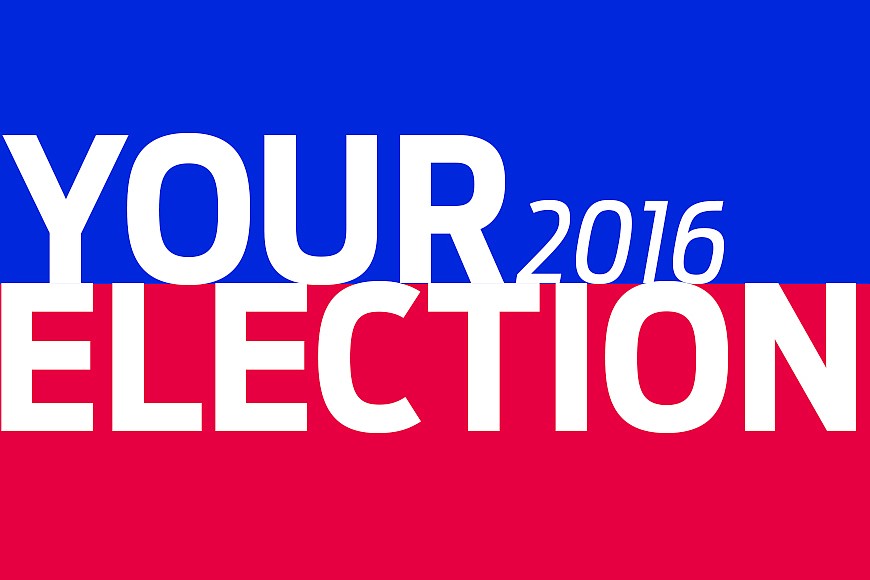- April 19, 2024
-
-
Loading

Loading

Age: 69
Hometown: Sarasota
Previous political offices: Appointed boards, including Sarasota County Commission on the Status of Women
Political party: Democrat

About: Jan Schneider has graduate degrees from Yale University, a juris doctor from Yale Law School, a master of international affairs from Columbia School of International and Public Affairs, a certificate from the University of geneva and a bachelor of arts from Brown University.
Schneider’s professional experience includes her work for the Law Offices of Jan Schneider, president and director of U.S. East Inc., work for the United Nations and work as an adjunct professor at American University Law School. She also ran for U.S. Congress against former Florida Secretary of State Katherine Harris, and has provided pro bono legal services to residents of local public housing for more than a decade.
She has volunteered as a director or officer for the American Society of International Law; International Law Association (American Branch); Council on Ocean Law; Friends of Art and Preservation in Embassies; Law of the Sea Institute; Roshan Cultural Heritage Institute; United Nations Association (National Capital Area); Gulf Coast Marine Institute South; DAVA (No. 97); Henry Lawrence Youth Foundation; Lemon Bay Conservancy, National Association for Women (Sarasota-Manatee); Protect Our Waters, Sarasota Commission on the Status of Women (Sarasota-Manatee) and Seniors for Pets. She is also a member of the Council on Foreign Relations, NAACP, Canadian Council on International Law and others.
Schneider has also written “Baby Boomer Law and Politics: Federal Political Guide for Seniors – and Their Children and Grandchildren.”
How would you articulate what you advocate the country's energy policy to be?
Energy policy has many elements, but three goals appear to predominate.
1. Assuring secure supplies. Reducing dependence on foreign oil is a major energy and foreign policy goal. Every drop produced in this country as opposed to abroad means more jobs, economic growth and reduction of trade deficits. Other considerations, however, suggest decreasing reliance on fossil fuels and eliminating subsidies for oil companies.
We need to accelerate transition to clean, renewable energy sources. Despite improvements in carbon capture and sequestration technologies, in my view the idea of clean energy from coal is a myth. Nor can nuclear energy be considered a long-term clean or renewable source, due to safety and waste disposal problems and to the finite availability of uranium. On the other hand, solar and wind both qualify, and they now generate enough energy to power nearly 20 million American homes.
2. Reducing costs. Reducing energy costs and its flip side of increasing efficiency are fairly obvious. Policies may involve eliminating subsidies that skew markets, enacting stricter fuel efficiency and usage standards and, of course, eliminating waste.
3. Protecting the environment. Climate change is a major consideration. The 2015 Paris Agreement is a step forward, but it consists more of aspirations than firm commitments and lacks effective enforcement mechanisms.
Also, six years after the BP Deepwater Horizon disaster, the Gulf of Mexico is still suffering grave environmental after effects. Congress instituted a ban on drilling in the Gulf within 125 miles of Florida coasts, which moratorium is scheduled to expire in 2022. It should be extended.
4. Other considerations. Other considerations may be factored into the above, such as balancing energy needs with public interests in public lands. I oppose drilling in the Arctic National Wildlife Refuge and support a moratorium on fracking on public lands.
What should the U.S. position be toward Russia? How about China?
Despite the professed admiration of Donald Trump for Vladimir Putin, Russia and its president are far from being friends of the United States. Relations seem worse than at any time since the Cold War.
With regard to Syria, Russia is the primary backer of President Bashar al-Assad, and survival of the Assad regime is critical to maintaining Russian interests, including the key naval facility leased at the Syrian port of Tartous. The U.S. seeks to oust Assad after widespread atrocities in Aleppo and elsewhere. Talks on a Syrian ceasefire have again broken down, and hundreds of thousands of Syrians are still being killed or fleeing the country. All of this comes against the background of Russian annexation of the Crimea and military incursions in eastern Ukraine. In my view, there must be no U.S. boots-on-the-ground in Syria, but short of that all options should be open.
There is also the issue of alleged Russian cyberattacks on U.S. political groups and election systems. To be fair, the Moscow has steadfastly denied meddling in our presidential election, and such interference has yet to be proved. Still, the accusations go to the heart of our democracy, and cybersecurity must be a paramount concern of the present and next U.S. administrations.
Regarding China, a rare area of agreement between Hillary Clinton and Donald Trump appears to be that the U.S. must fight back against Chinese currency manipulations crippling our trade. Still, it is hard to argue with one’s banker, and U.S. debt to China is around $1.25 trillion. Then too, China has been intensifying its military operations in the South China Sea. Among other things, this forces the United States to decide to what degree to honor our Mutual Defense Treaty with the Philippines.
Everyone acknowledges our tax system is a regulatory nightmare. How, specifically, would you like it reformed?
Generally, the Internal Revenue Code and regulations verge on the incomprehensible. They are also unduly skewed towards the wealthy.
1. Individual taxes. With regard to individual taxes, the rallying cry by our opponent for tax “simplification” is deceptive. Simplification, flat rates and the like typically mean that the rich pay less and the middle class and working poor more. Poorer individuals and families pay a much larger share of their incomes in payroll, sales and property taxes.
Hard-working families outside the top 1% need and deserve federal tax relief – and the super-rich should pay their fair share. An example of a specific change toward greater fairness is to eliminate the “carried-interest loophole,” whereby hedge fund managers are taxed at the highest long-term capital gains rate of 20% instead of the earned-income high of 39%.
2. Corporate taxes. While on paper United States corporate taxes are among the highest in the world, effective rates are quite different. A recent prominent study found that for each dollar the 50 largest companies paid in federal taxes between 2008 and 2014, they received $27 in boons. Congress might start by closing the “pass-through income” loophole for large business entities — but not small businesses — and eliminating subsidies for oil companies and the like.
3. Estate taxes. Regarding federal estate/gift taxes, my suggestion is to leave things alone. The supposedly “permanent” provisions of the American Taxpayer Relief Act of 2012 appear to have struck a viable compromise. Reigniting the controversy over estate/death taxes seems unlikely to produce more palatable results for the majority of Americans or even politicians.
4. Dividends and capital gains. Similar thinking applies to federal tax provisions for dividends and long-term capital gains. The ATRA fixed the rate at 20%, and the rates are likely to stay there.
If Trump wins, what will you support or advocate with respect to the Iran nuclear deal? Tear it up?
Controlled skepticism probably best describes my opinion of the Iran Nuclear Agreement – officially known as the Joint Comprehensive Plan of Action (JCPOA) — between the P+1 (China, France, Germany, Russia, the United Kingdom, and the United States) and Iran. This is unlikely to be directly affected by who becomes the next president of the U.S.
The possibility of Iran possessing nuclear weapons and sophisticated delivery systems is unquestionably horrifying. A nuclear-armed Iran would pose immediate dangers to the United States, Israel and the world at large. In addition to direct threats, it would almost certainly launch a new round of the nuclear arms race. While I share many of the concerns expressed by Israeli Prime Minister Benjamin Netanyahu, I conditionally support keeping the Iran Nuclear Agreement in place – as part of a broader United States strategy toward Iran – so long as inspections continue to show Iran abiding by it.
The Iran Nuclear Agreement should extend Iran’s “breakout” time (time to one bomb) to one year or longer for at least the first ten years. Nevertheless, buying time entails significant costs.
Upon verification by the International Atomic Energy Agency in January 2016 that Iran had complied by drastically reducing its number of centrifuges and shipping tons of low-enriched uranium to Russia, the United States lifted financial sanctions on Iran and released approximately $100 billion in frozen Iranian assets. This restricted future U.S. ability to exert pressure on Iran through revived sanctions. Another adverse effect of the Iran Nuclear Agreement has been to draw Iran and Russia closer together, including with the sale to Iran of the S-300 long-range, surface-to-air missile defense system. The S-300 could complicate any American or Israeli effort to bomb Iranian nuclear sites. In addition, it must be recognized that there are five other countries involved in the deal besides the U.S. and Iran. Precipitous action by our country in abrogating the Iran Nuclear Agreement could seriously damage relations with the other parties.
With particular regard to the last part of the second question, concerning what the House of Representatives should do with respect to the Iran Nuclear Agreement, my response is nothing at this time. On September 11, 2015, the House did reject the deal, with every Republican plus 35 Democrats voting against it. Senate Democrats, however, blocked a similar Republican resolution, ensuring that the deal took effect without a veto showdown.
The bottom line is: What is the alternative? My view is that President Hillary Clinton should for now stick with the Iran Nuclear Agreement and use the time urgently to come up with a better policy. Do not “tear it up,” as Donald Trump has promised. In the long-term, depending on how the situation unfolds, I could go a variety of ways on this issue.
Why should you be elected? If you're elected, you're likely to be in the minority party. What good is that?
Initially, this question seems peculiar. Obviously, the two-party system, with some minor parties, has become fundamental to our democratic republic; under it, one or the other major party is always in the minority. On further reflection, however, it seems that the question addresses the extreme polarization and dysfunction in Congress and United States politics as a whole. As a result, Congressional approval has sunk to new lows in recent years, and it has not risen even to 25% since 2009.
Actually, the overall picture is worse. Due to gerrymandering and other factors, our country has essentially become a collective of one-party fiefdoms. Most congressional and other districts are predominantly controlled by Republicans or Democrats. This tends, especially when there are decisive primaries, to push candidates toward the fringes of both parties. Another consequence is that fewer than 25 of 435 House of Representatives races (less than 6%) are generally considered competitive in the 2016 general election. Such entrenched partisanship is bolstered by massive infusions of cash. This is a major reason why I urge Congress to overturn the Citizens United case by supporting constitutional amendment or a system of public financing of elections.
So what good is that? Even with the ultra-partisanship of recent times, minority representatives still have a voice and a vote in Congress. Outsiders too can influence political views over time, as both Bernie Sanders and Donald Trump have surely demonstrated, for good or bad, at a national level.